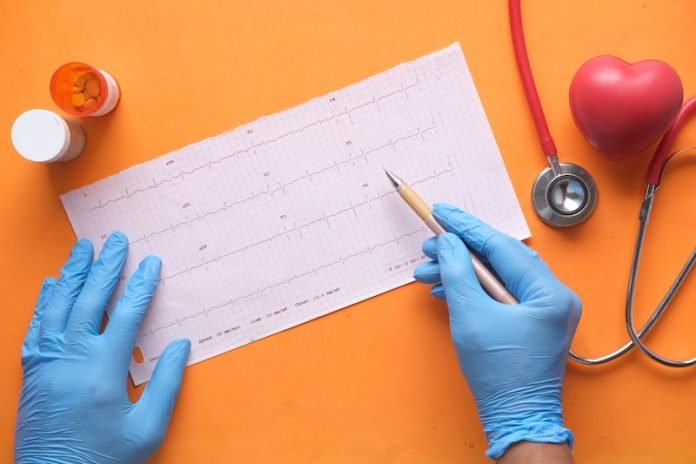
Scientists from Simon Fraser University (SFU) and elsewhere have discovered a drug that may help save lives in the treatment of heart conditions that lead to sudden cardiac death.
What are J Wave Syndromes (JWS)?
The drug, called AR-787, may be effective in treating J Wave Syndromes (JWS) like Brugada syndrome and early repolarization syndromes.
JWS affect about 1 in 2,000 people and can cause dangerous heart rhythm problems that can lead to sudden cardiac death. Hypothermia can also trigger arrhythmias in some patients.
What is the current treatment?
The current treatment for high-risk patients is an implantable cardioverter defibrillator (ICD). However, this can be problematic for young patients and those who receive frequent shocks from the device.
What is AR-787?
AR-787 was designed to interact directly with a protein in the heart called the cardiac sodium channel. The sodium channel is essential for the electrical impulse that triggers the contraction of the heart muscle.
How was AR-787 discovered?
AR-787 was originally discovered and designed by former SFU Ph.D. student Mena Abdelsayed as a pharmacological solution for arrhythmias.
Abdelsayed designed different drug structures using computer modeling programs until he achieved the desired results.
Testing AR-787
Abdelsayed and his research team proved the drug’s effectiveness in altering sodium channel current characteristics by performing tests on sodium channel genes inserted into human embryonic kidney cells.
However, they had yet to verify the drug’s effectiveness in the muscle cells of a real heart.
AR-787 trials
To test the effectiveness of AR-787 on the muscle cells of a real heart, Abdelsayed’s team reached out to Dr. Charles Antzelevitch, a distinguished professor emeritus and executive director of cardiovascular research at LIMR.
Dr. Antzelevitch’s team supported the research by conducting AR-787 trials on mammalian hearts in LIMR’s laboratory.
Results of AR-787 trials
Dr. Antzelevitch’s team tested the effect of the drug on the sodium channel current and additional ion channels within the heart.
They found that AR-787 not only augmented sodium channel activity but was also effective in inhibiting a particular cardiac potassium channel that contributes importantly to the development of life-threatening arrhythmias in experimental models of Brugada and early repolarization syndromes.
What does Dr. Antzelevitch say about AR-787?
Dr. Antzelevitch, who has been researching J-Wave syndromes for 35 years, says that inhibiting the transient outward potassium current can prevent the development of lethal arrhythmias related to JWS regardless of the genetic cause of the syndromes.
He reported that a drug called quinidine blocks that channel and is effective in suppressing the development of JWS-related cardiac arrhythmias.
Quinidine has since been used worldwide in the treatment of JWS. Dr. Antzelevitch also reported that a natural product from the safflower plant called acacetin blocks the transient outward potassium current.
Dr. Antzelevitch believes that AR-787 may be the drug they’ve been looking for as it dissolves better than acacetin in blood and is free of quinidine’s adverse side effects.
Patenting AR-787
The team has patented the drug and hopes to inspire the pharmaceutical industry to take AR-787 to the next step, testing its long-term safety and efficacy and conducting clinical trials.
If you care about heart health, please read studies that yogurt may help lower the death risks in heart disease, and coconut sugar could help reduce artery stiffness.
If you care about heart health, please read studies about how eating eggs can help reduce heart disease risk, and Vitamin K2 could help reduce heart disease risk.
The study was published in PLOS ONE.
Copyright © 2023 Knowridge Science Report. All rights reserved.



